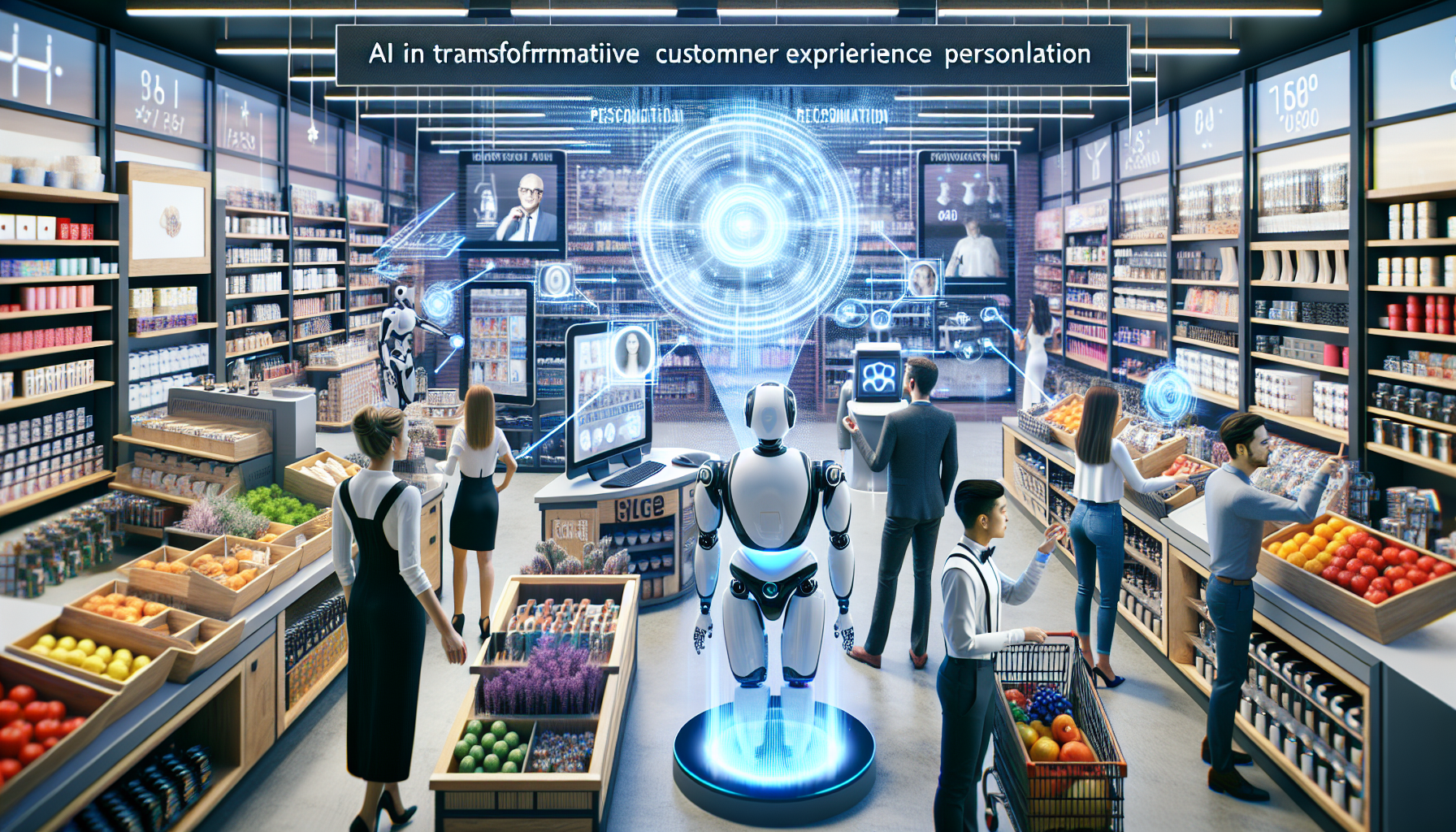AI in Retail: Transforming Customer Experience through Personalization
Understanding AI in Retail
Artificial Intelligence (AI) in retail refers to the use of sophisticated algorithms and machines to analyze data, predict trends, and automate processes, driving efficiencies and enhancing customer experiences. As retailers strive to meet the expectations of tech-savvy consumers, AI emerges as a game-changer, enabling businesses to personalize the shopping journey at every touchpoint.
Personalization through Data Analysis
AI algorithms analyze vast amounts of customer data, including purchase history, browsing behavior, and demographic information. By utilizing this data, retailers can segment their audiences and tailor offerings that resonate with individual preferences. For example, e-commerce platforms like Amazon leverage AI to provide personalized product recommendations based on user behavior, significantly increasing conversion rates.
- Behavioral Data: Tracking how customers interact with websites and apps helps identify patterns that inform tailored marketing messages.
- Purchase History: Understanding past purchases allows retailers to predict future needs and suggest relevant products.
- Demographic Insights: Age, location, and gender data help create tailor-made marketing strategies that increase engagement.
Enhanced Customer Engagement
AI tools enable deeper customer engagement through personalized communication. Chatbots and virtual assistants powered by AI provide 24/7 customer service support, which personalizes interaction and boosts satisfaction rates.
- Chatbots: These AI-driven tools offer instant answers to inquiries and can recommend products based on customer profiles, thus providing personalized shopping assistance.
- Email Marketing: AI algorithms can optimize email campaigns by analyzing customer data to send targeted content, improving open and click-through rates.
Predictive Analytics for Inventory Management
AI’s predictive analytics capabilities play a crucial role in managing inventory effectively. By forecasting product demand based on historical sales data and market trends, retailers can maintain optimal stock levels, minimize waste, and enhance customer satisfaction.
- Demand Forecasting: AI evaluates various factors like seasonal trends and consumer behavior, ensuring that popular products are always available.
- Supply Chain Optimization: AI-driven insights facilitate smarter decision-making in procurement and inventory control, allowing for faster response times to market changes.
Personalized Pricing Strategies
Dynamic pricing is another revolutionary application of AI in retail. Algorithms adjust prices in real-time based on various factors like demand fluctuations, competition, and customer behavior. Personalized pricing sets a strategic advantage, ensuring that customers feel valued through customized offers.
- Real-time Adjustments: Retailers can employ algorithms that analyze market conditions to offer tailored discounts or limited-time promotions.
- Customer Segmentation: By understanding price sensitivity among different demographics, retailers can craft pricing strategies that maximize revenue while enhancing customer loyalty.
Enhanced In-Store Experience
AI’s impact on retail is not limited to online experiences; it extends into physical stores as well. AI-driven tools such as smart mirrors and in-store navigation systems help enhance the shopping environment.
- Smart Mirrors: These devices allow customers to virtually try on clothes, offering personalized style suggestions and facilitating quicker decision-making.
- In-store Navigation: Using AI, retailers can guide customers through the store based on their preferences and past purchases, enhancing the overall shopping experience.
Customer Feedback Analysis
AI facilitates the analysis of customer feedback across various platforms, including social media, surveys, and reviews. Retailers can gain valuable insights into customer sentiment, enabling them to iterate on products and services.
- Sentiment Analysis: AI tools assess the emotional tone of customer feedback, revealing areas for improvement or highlighting successful strategies.
- Net Promoter Score (NPS): AI can process NPS data to identify trends and predict customer loyalty, guiding further engagement strategies.
Omnichannel Personalization
A seamless integration of online and offline channels is crucial in today’s retail landscape. AI helps create a cohesive omnichannel experience, ensuring customers receive personalized interactions regardless of the platform they choose.
- Unified Customer Profiles: AI consolidates individual customer data across channels, allowing for personalized marketing and engagement at every touchpoint.
- Targeted Promotions: Leveraging omnichannel insights, retailers can deliver consistent and targeted promotional messages that enhance brand loyalty.
Challenges and Ethical Considerations
While AI offers transformative benefits to retail personalization, it also poses challenges. Privacy concerns and the potential for biases in data processing require careful handling to maintain customer trust.
- Data Privacy: Retailers must comply with regulations like GDPR, ensuring that customer data is used ethically and transparently.
- Bias Mitigation: It’s essential to calibrate AI algorithms to avoid bias, ensuring that personalization enhances inclusivity rather than alienating certain customer groups.
Future Trends in AI-Driven Personalization
As technology evolves, the future of AI in retail looks promising, with several trends on the horizon.
- Augmented Reality (AR): AR integration can revolutionize personalization, allowing customers to visualize products in their own environments before making a purchase.
- Voice Commerce: The rise of voice-assisted devices will lead to voice-based shopping experiences, requiring retailers to personalize offerings through voice recognition technology.
Conclusion
The burgeoning frontiers of AI in retail are reshaping how businesses interact with customers. By leveraging data-driven insights and innovative technologies, retailers can offer personalized experiences that leave lasting impressions, driving customer loyalty and ultimately, business growth. The emphasis on personalization, powered by AI, is not just a trend; it is a pivotal shift in the retail landscape, ensuring tailored shopping experiences in an increasingly competitive market. As the technology continues to advance, retailers who embrace this change will lead the charge in delivering exceptional customer experiences through personalization.


